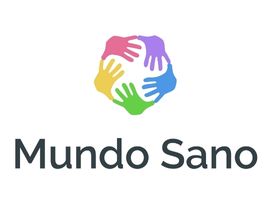When on December 10th, 1948, as a result of the enormous commotion that the world suffered due to the Second World War, the United Nations created the Universal Declaration of Human Rights and health was defined as one of these essential rights.
The right to health establishes that Member States recognize the right of everyone to have the benefit of the highest attainable standard of physical and mental health and includes acceptable and affordable access to quality health care services.
Sometime later, another important event took place to achieve equity in world health. On 1978, Alma-Ata (Kazakhstan) held the international conference on primary health care, a milestone in health policy in the 1970s that nowadays it continues being a benchmark, although the global context has suffered major changes in recent years. The Declaration of Alma-Ata stated about the serious inequality of heath that exist in each country, as well as inside each barrier as for its political, social and economical differences. One of the achievements in the event was to attract international attention to the concept of Health as a Human Right and also, primary health care was proposed as the best strategy to make health available to all members of the society.
We call inequities unjust, systematic and avoidable differences, and not mere health differences.
More recently, the World Health Organization (WHO) introduces the concept of universal coverage health care, with aims to “ensure that all people receive the heath services they need, without having to go through financial difficulties to pay for them.” So that a community or a country can achieve universal health coverage, several requirements must be fulfilled:
1.- The Existence of a solid, efficient and well-functioning national health system that satisfies priority health needs based on people-centred, providing an ongoing information to keep them healthy and preventing diseases, as well as an early detection of diseases and having the resources to treat them and help patients through rehabilitation services.
2.- A financing system for health services in which people do not have to suffer financial hardship to use them.
3.- Access to medicines and essential technologies for diagnosis and treatment.
4.- Guarantee well-trained and motivated health personnel to provide services that respond to the needs of patients, based on scientific evidence.
Unfortunately, these objectives were far from being achieved. The beginning of the year 2020 shook the whole planet with the appearance of a virus, that expanded to a worldwide pandemic. SARS Coronavirus 2, that developed Covid-19.
Expert circles warned about the risk of a pandemic. In fact, smaller-scale pandemics had been happening in the world: H1N1, Ebola, MER; but the magnitude with which the SARS coronavirus 2 hit exceeded all predictions.
Health, economic, social, psychological and educational impact was of such a magnitude that we can say that it transformed the world.
Health systems weren’t as effective as the situation required, even in high-income countries. We still all have to take advantage of the lessons learned.
Our Foundation, Mundo Sano, has the mission of improving the access to health for people affected by neglected diseases. We refer to a group of twenty diseases so named by the World Health Organization, which affect 1.6 billion people. 1 in 6 people have at least one of these diseases, and sometimes more than one simultaneously. They are often avoidable diseases, and always treatable, so therefore, not treating them in any other way violates the concept of equity.
Our work consists of identifying barriers that affect access to health for these people (not-attended people!) through innovation and research, in order to generate evidence that allows improvements in public health policies.
In some cases, we find out that the principal barrier is the lack of an available and accessible drug, and we prioritize resolving it. This happened, for example, in the case of Chagas disease, an infection transmitted by a parasite (Trypanosoma cruzi), typical of the Americas, which became globalized because it is a chronic disease, sometimes silent, and that has the possibility of be transmitted during pregnancy, and in that case the mother can infect the baby. Avoiding this transmission is an attainable goal. And the challenge of No baby with Chagas, for which we began to create the pillars some years ago, today became an Ibero-American Initiative.
Speaking of health access means that all the stages to achieve the state of health have to be fulfilled. We were able to dedicate ourselves to promote the interruption of transmission from mother to baby when we were able to ensure that the drug was available.
We are moved by everything that has been achieved so far, and this stimulates us to advance in how much it remains to be achieved
Silvia GoldPresidenta de la Fundación Mundo Sano





